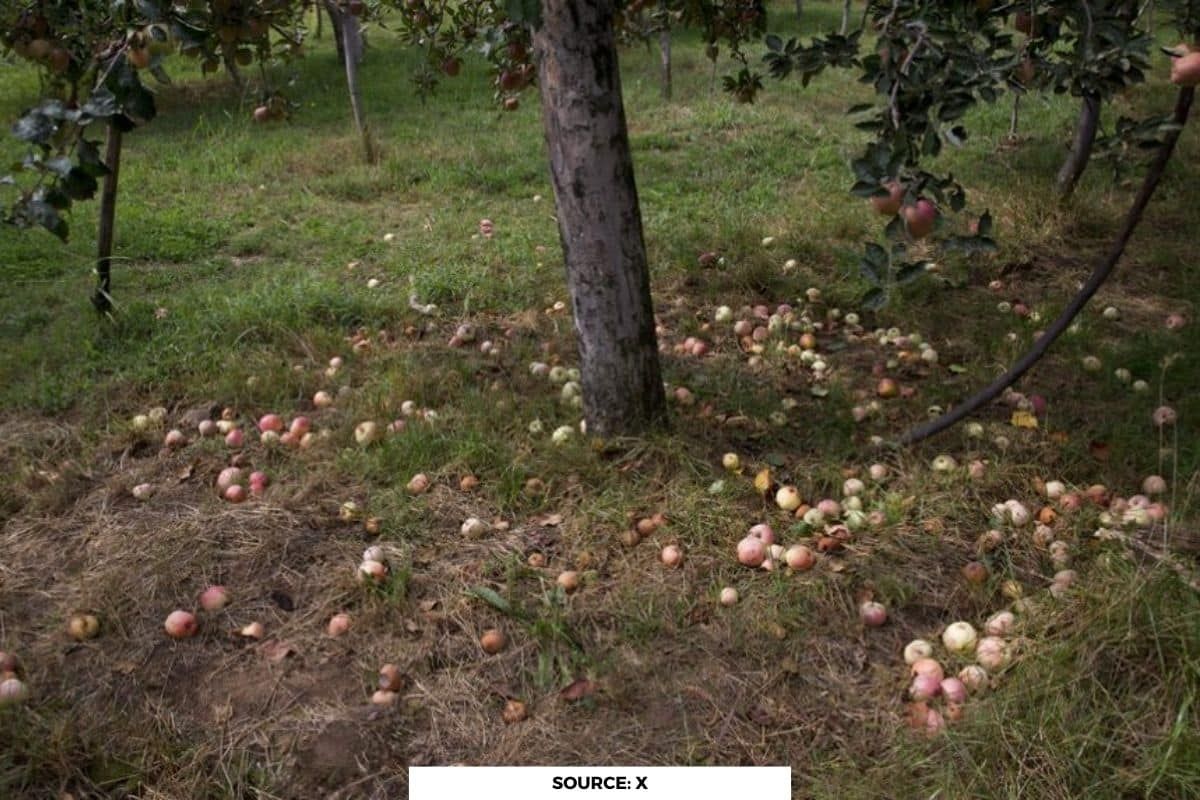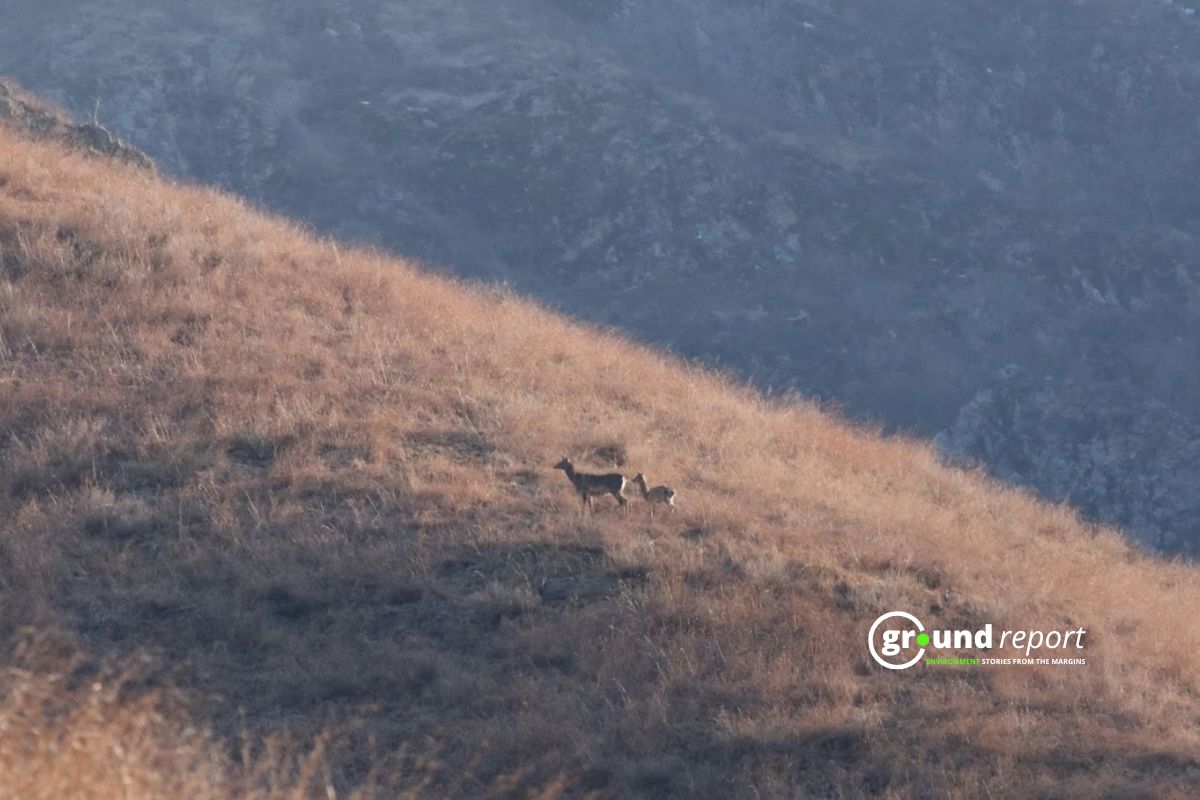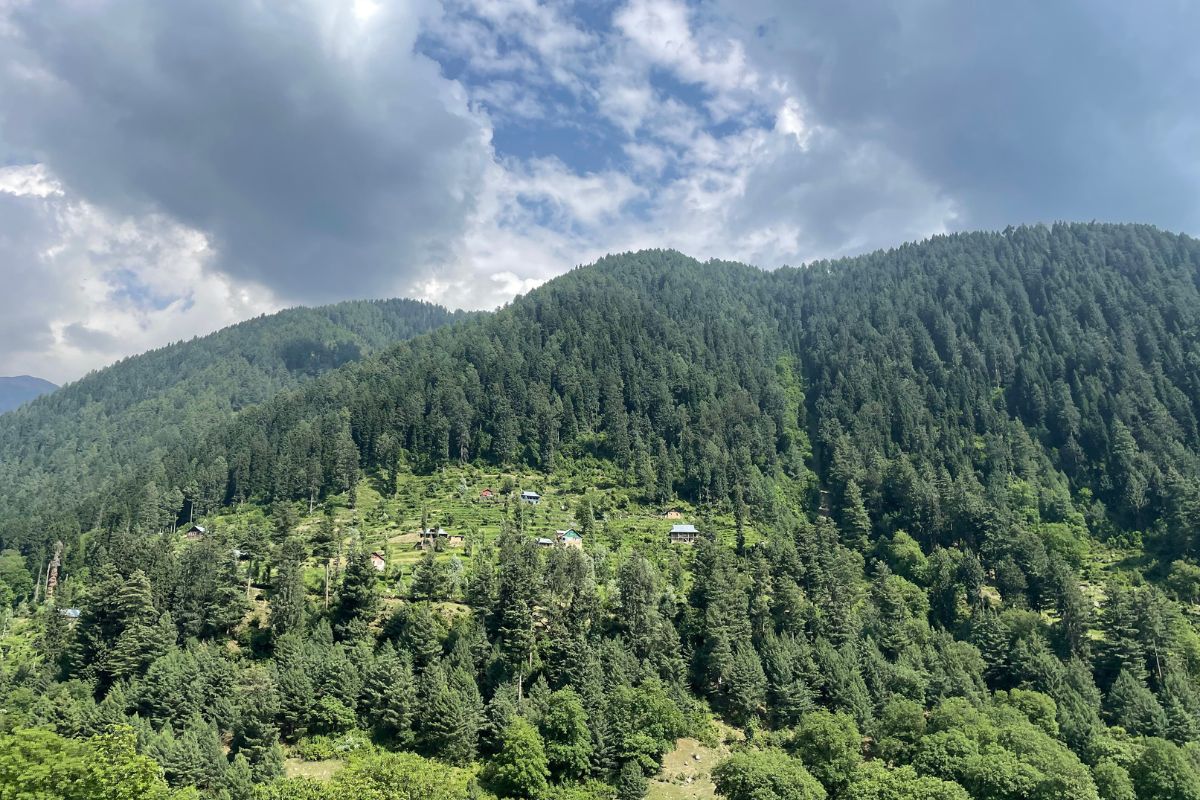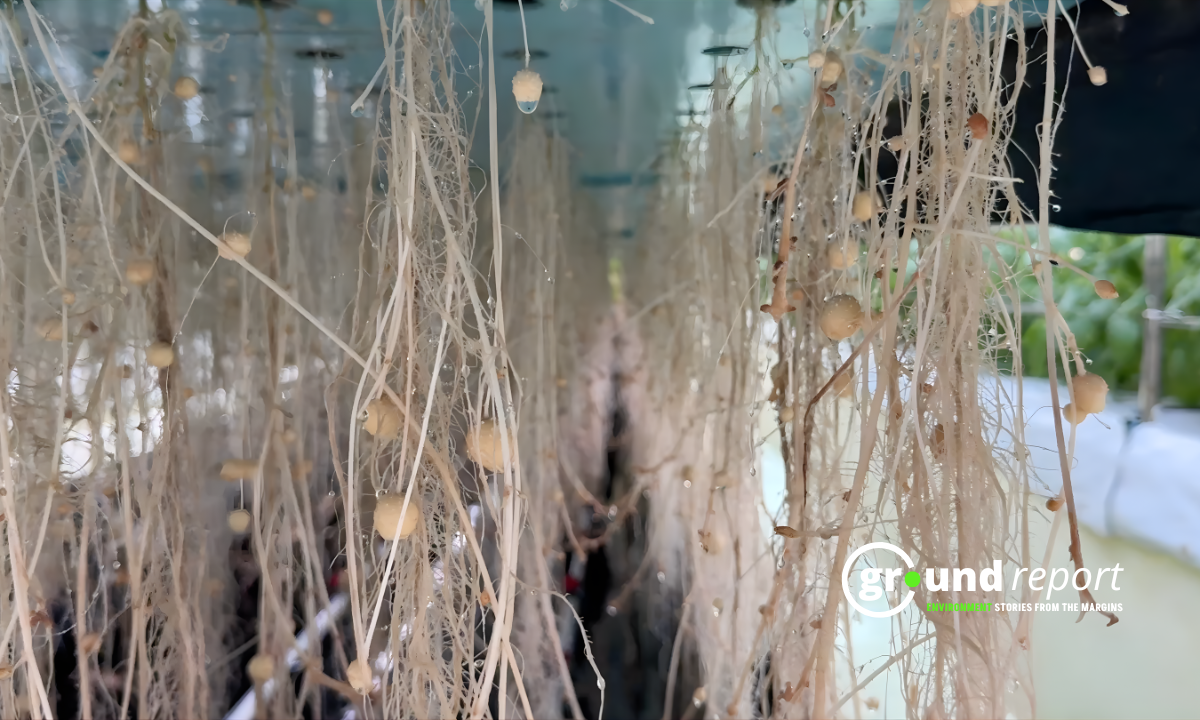Apples could disappear in Kashmir; Home-grown apples in India will soon become a rarity. Farmers have lost nearly half of their crops this year, and much of India’s orchards are expected to be destroyed soon.
About 80% of India’s apples are grown in Kashmir. During the first snowfalls of this year, farmers in the region lost almost half of their production. Research has shown that climate change could make apple production in Kashmir unsustainable for years to come.
Off-season snowfall in October this year affected a large number of fruit trees in Kashmir, where nearly 80 percent of India’s apples grow. The snowfall severely damaged orchards in Shopian and Kulgam districts in south Kashmir, where they have not harvested 50 percent of the fruit yet.
Farmers lose their crops for the third year in a row due to early and heavy snowfalls in the Kashmir Valley. “In light of the changing climate, apple picking is not sustainable,” Dr. Irfan Rashid, Coordinator, Department of GeoInformatics, Kashmir University said.
“Usually in Kashmir, it snows after December 15, but in the last two decades, we have seen early snowfalls. Many apple varieties are harvested in November. Over the past five years, we have had three occasional snowfalls, and in the future, the situation may worsen.”
He added: “Climate models predict a very bleak scenario for erratic weather. In the Himalayas, including this region, there will be more frequent extreme events as we progress through the century. It is normal that Kashmir will witness extreme weather events.”
Climate change threatens Kashmir’s apple industry
Climate change is posing a significant threat to the apple industry in Kashmir, which produces 80% of India’s apples. Sharp temperature variations have led to unseasonal snowfalls and early summers, causing heavy damage to apple orchards. This has resulted in an almost 30% decline in apple production, dealing a serious blow to the region’s biggest industry and leaving farming families with substantial debts.
Apple farmers have reported that heat waves and humidity are causing dark smudges on the surface of apples, a condition experts refer to as sooty blotch and flyspeck disease. This disease adversely affects the quality of the crop. The losses in the apple industry have forced thousands of people out of the sector as traders wind up their businesses.
The average daytime temperature in March usually hovers around 15 degrees Celsius. However, this year, the mercury rose significantly, causing Kashmir’s apple crop to blossom early. Sharp temperature fluctuations followed, resulting in the fall of the fruit buds and the spread of infectious diseases.
The northern part of Kashmir, known as the region’s apple bowl, produces the highest quantity of apples. Over 70% of India’s apples come from Kashmir. Any disruption in trade and production threatens to throw the state’s most hardworking people over the economic edge.
The situation is not just limited to apples. Cherry, apples, plum, and strawberries – all fruit crops in the region – have been under the weather, pushing traders and producers into panic.
Climate change is causing bees to die in Himachal Pradesh and the Kashmir Valley, leading to major losses for apple growers in the region. They estimate that apple production will decrease by about 30 per cent in Himachal Pradesh and 20 per cent in the Kashmir Valley this time.
Apples could disappear in Kashmir
The apple industry, which sells its products in India and abroad, contributes Rs 5,000 crore to the local economy annually. As the climate crisis worsens, the gardens in the Kashmir Valley will become unsustainable over the next few years, researchers warn.
According to the Kashmir Horticulture Department, farmers suffered damage of Rs 500 crores in 2018 and Rs 2,250 crores in 2019, when Kashmir had the heaviest snowfall in 60 years.
“If we examine the Met History, we see that we experienced heavy snowfall in the first week of November in both 2018 and 2019. Snowfall arrived in October, which is notably early. November is the month for harvesting many varieties of apples, so it is clear that erratic snowfalls will detriment the harvest and harm the trees. We carried out a study in 2018, revealing that damage ranged from 4 to 50 percent, and some gardens suffered up to 50 percent damage. On average, damage affected about 35 percent of our crop,” he added.
Kashmir’s apple industry is a significant contributor to the region’s economy, providing livelihoods to thousands of farmers and workers. The industry also plays a vital role in the export market, with Kashmiri apples being in high demand in countries like the United States, Saudi Arabia, and the United Arab Emirates.
The government of Jammu and Kashmir has recognized the impact of climate change on the apple industry and has taken steps to address the issue. The government has launched several initiatives to promote sustainable farming practices, including the use of organic fertilizers, drip irrigation systems, and crop diversification.
Damage due to snow
Kashmir’s Department of Horticulture stated that the heaviest snowfall in 60 years, which Kashmir witnessed in 2018 and 2019, caused farmers to suffer damages of Rs 500 crore and Rs 2,250 crore respectively.
“Another farmer, Aamir Hussein, reported that the snow had cracked 10 of his 70 trees and damaged or completely lost branches on 15 more. “I felt devastated at the sight of broken branches and apples fallen on the ground. The snow fell heavily, leaving me standing helplessly watching it,” said Hussein.
Research shows that despite the initial cost of replacing existing varieties, this can be a profitable solution.Farmers are hesitant to take on these costs, however, and Rashid said it could lead to the loss of local apple varieties.
Apple employees 70 percent of the Kashmiri population. Those who are followed by apple orchards do not go to work anywhere else. They work in their field, besides this, people from other countries come and work here.
In the state, 95 to 98 percent of marginalized farmers own land from three to 10 kanals and one or two percent are farmers who have one or two kanals of land.
Bashir Ahmed said small and marginal farmers find it more difficult to benefit from government schemes, while large farmers who have large farms benefit more from government schemes. Referring to 2019, he said that due to the natural disaster in November 2019, the apple harvest was severely affected, but the farmers were given Rs 1,000-500 in compensation.
Keep reading
- In Gadchiroli, Madia Gonds’ way of life and the forces that threaten it
- 193 villages in Madhya Pradesh flood due to Sardar Sarovar’s backwater, who is responsible
- Jammu and Kashmir facing worst impact of climate change
- Climate change leaves Kashmir villages without water
- Climate Change: Impact of Untimely Snowfall on Nomads of Kashmir
- Why are Sheep dying in Kashmir?
Follow Ground Report for Climate Change and Under-Reported issues in India. Connect with us on Facebook, Twitter, Koo App, Instagram, Whatsapp and YouTube. Write us on GReport2018@gmail.com






